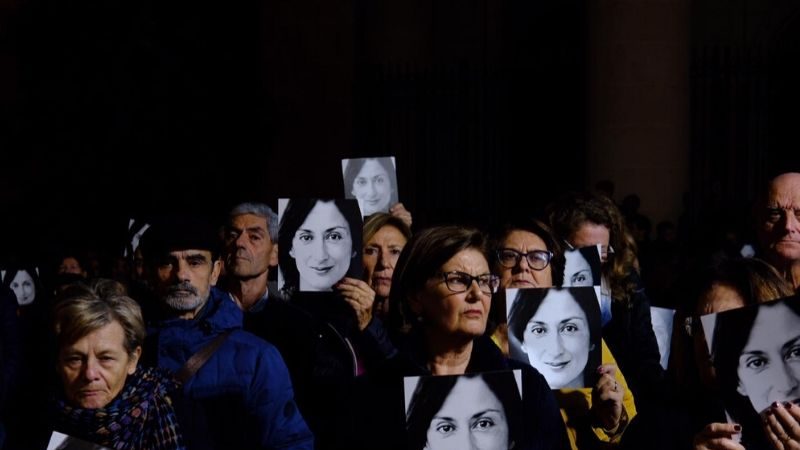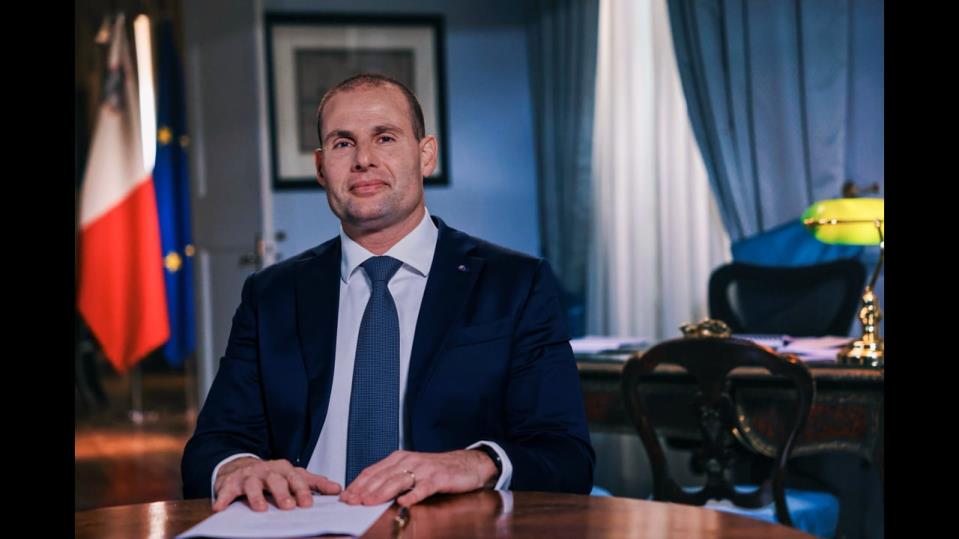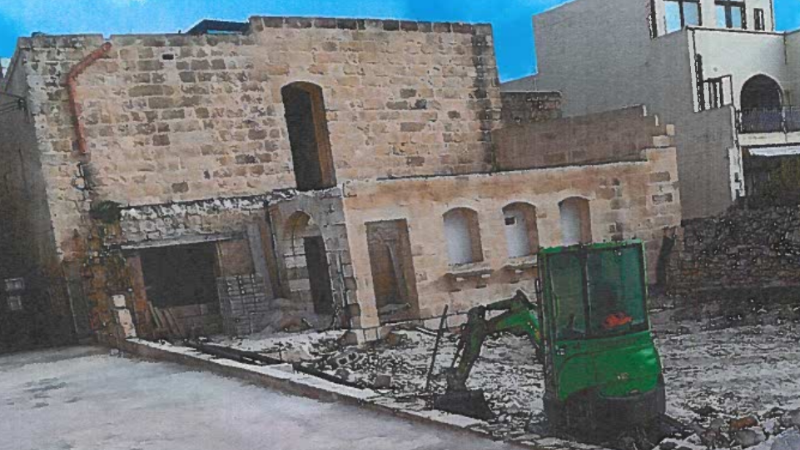Persistent delays and administrative obstacles to the judicial process in the ongoing investigation on the assassination of journalist Daphne Caruana Galizia highlight the “fundamental weaknesses” in Malta’s commitment to open and equal justice, a new report by the Council of Europe’s Safety of Journalists Platform notes.
“The Platform partners also welcomed the indictment of alleged mastermind Yorgen Fenech, who was charged with complicity to commit murder in August 2021, deeming it a “milestone” in the pursuit of justice. But persistent delays and administrative obstacles to the judicial processes during more than four years since the journalist’s killing demonstrate fundamental weaknesses in Malta’s commitment to open and equal justice,” the report adds.
The annual report, this year titled ‘Defending Press Freedom in Times of Tension and Conflict’, was published at a press conference on Wednesday.
Apart from Fenech’s indictment, the platform partners wrote that they also welcome the conclusions made by the public inquiry. However, both public inquiry, and Fenech’s indictments are “milestones” that “were the result of a painful and painstaking battle and do not guarantee justice,” they said.
In a section specifically dedicated to updates from the past year on the Caruana Galizia case, the organisations said that by the end of 2021, the press freedom groups had “continued to wait for the commencement of the jury trials of two other suspected hitmen, Alfred and George Degiorgio”, and of Fenech. The jury trials have still not commenced.
The section also documents the fact that press freedom advocates had met up with Prime Minister Robert Abela in October 2021 to follow up on how the recommendations of the Public Inquiry would be implemented.
“In particular, they sought assurances that the Maltese authorities would refrain from amplifying a policy of media regulation; ensure the passage of comprehensive legislation tackling Strategic Lawsuits against Public Participation (SLAPPs); improve access to information; engage in continuous transparent consultation and dialogue with civil society and journalists’ organisations; and contribute to changing the culture of how journalists are treated in Malta – including ensuring better protections for journalists to be able to do their jobs safely,” it says.
The report notes how, at the end of the year, the press freedom organisations had raised concerns that the Committee of Experts selected by Abela “would not necessarily meet the high expectations set out by the Public Inquiry”.
The report lists that Abela “did not publish terms of reference for the selection of candidates, did not openly consult with civil society about the appointment of the Committee of Experts, and did not respond to a letter from civil society seeking clarification.”
The organisations also expressed concern at the government’s SLAPP proposals not being “in line with international standards,” and therefore would not “adequately eradicate the practice of the abuse of these vexatious lawsuits against Malta’s journalist community.”
The 2022 report gives significant focus to the impact on media freedom caused by the Russian Federation’s attack on Ukraine – one of the most pressing topics in media freedom this year.
“This act of aggression and the subsequent blanket state censorship of all truthful reporting about the war has had dramatic consequences on press freedom. The Russian authorities imposed draconian censorship rules with no regard for the fundamental safeguards for free speech and the public’s right to be informed that is required in democratic states,” the report says.
The past year has seen a large spike in alerts received by the platform. “On the European wall maps of media freedom, red lights are flashing. In 2021, 282 alerts from 35 countries have been submitted to the Platform, up from 200 in 2020, an increase of 41%.”

Graph showing the high number of alerts received by the Safety for Journalists platform in 2021.
The report is written up by the Platform’s Partner Organisations, a coalition of 15 press freedom NGOs and journalists associations and highlights key areas of law, policy and practices affecting media freedom and safety of journalists in Europe and identifies actions required to improve effective protection of journalists.
The organisations include the European Federation of Journalists (EFJ), the International Federation of Journalists (IFJ), Article19, Reporters Without Borders (RSF), Index on Censorship, Pen International, the European Centre for Press & Media Freedom (ECPMF) and Justice for Journalists Foundation (JFJ) and the Committee to Protect Journalists, among others.













Same old, same old. One empty promise after another… the “ untouchables “ remain exactly that. They know it and so do we.
When and how will it ever change?
Where is there freedom of the press in a quasi-dictatorship?
The dictator ROBBER Abela does not answer honestly to the press about his machinations, nor does the “puppet” police under the direction of the so-called police commissioner Angelo Gafá pursue to see or pursue anything.
They are the shame of Malta!